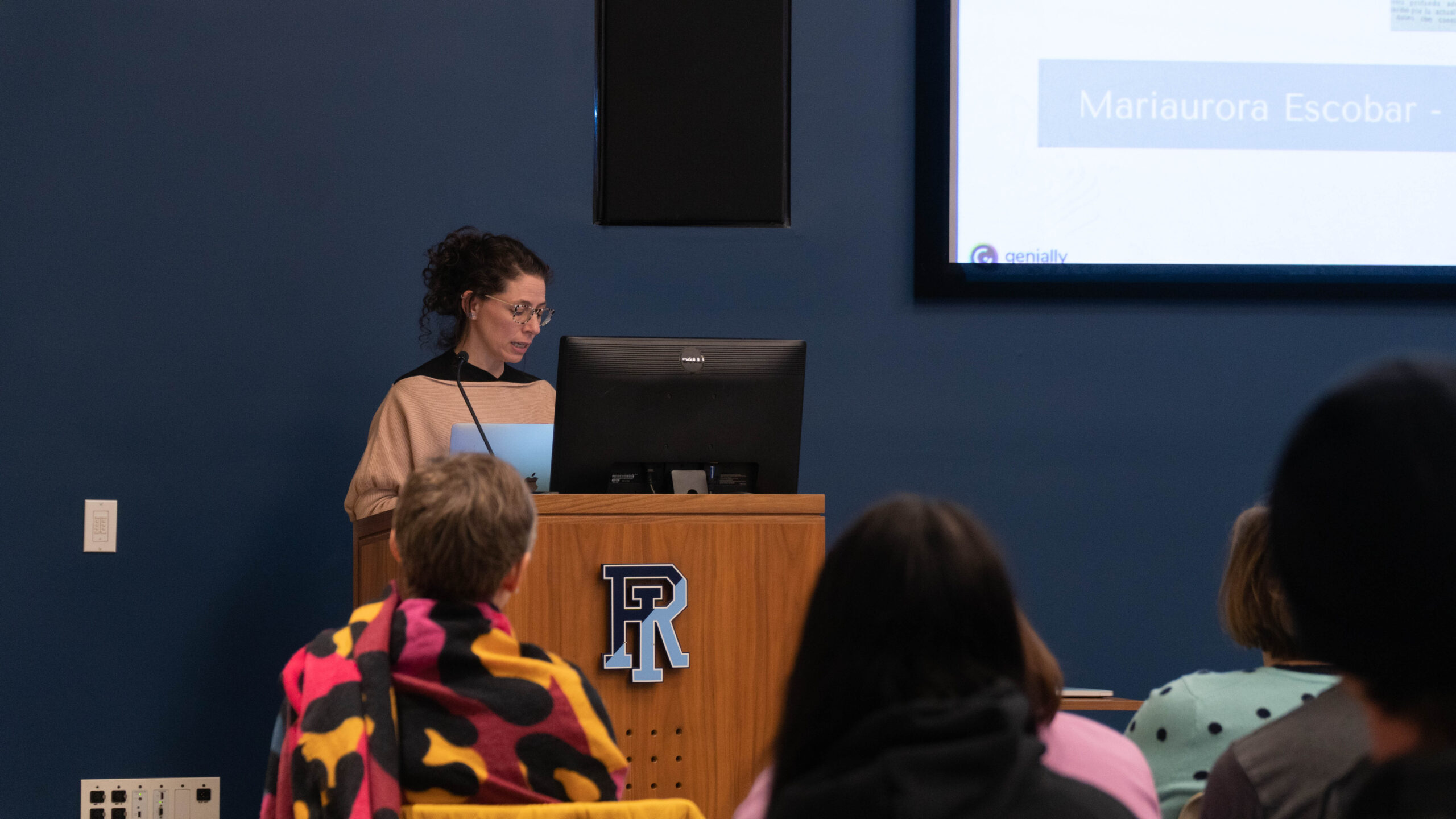Sandra Sanchez-Lopez presenting about her new book entitled “Battles for Belonging: Women Journalists, Political Culture, and the Paradoxes of Inclusion in Colombia, 1943-1968.” PHOTO CREDIT: Connor Zisk | Staff Photographer
In celebration of Women’s History Month, the University of Rhode Island invited Associate Professor Sandra Sanchez-Lopez to speak on “Contesting the Rules of Journalism: Paradoxes of the Women’s Press in Mid-Twentieth Century Colombia.”
Sanchez-Lopez is currently on sabbatical from the Universidad de los Andes in Bogotá, Colombia where she teaches journalism. While on sabbatical, Sanchez-Lopez is refining her manuscript for her book “Battles for Belonging: Women Journalists, Political Culture, and the Paradoxes of Inclusion in Colombia, 1943-1968,” and is doing so by introducing each section in front of an audience as a presentation.
“When people ask questions you have a thermometer of the reception of your book, which gives you an impression of how people are engaging with the material,” Sanchez-Lopez explained.
Sanchez-Lopez illustrated the struggles of women in journalism who were the first to take on nuanced writing techniques and literary devices. Satire was the main focus of the talk, where the audience learned about journalists like Ofelia Uribe de Acosta who utilized humor in journalism at a time when women were not allowed to be funny, according to Sanchez-Lopez.
Women like Uribe spearheaded the women’s rights movement in Colombia and manipulated satire to highlight gender roles and expectations at the time. By using hyperbole to express how nonsensical many of these expectations were, Sanchez-Lopez said the gendered codes of journalism were disrupted.
“Things have changed a lot, but they have remained [the same] too,” Sanchez-Lopez said. “That is part of the process of humanity. We are always in the middle of changing something but always in the middle of reproducing something as well. And this is something that really worries me. Nothing that we can do today is just because of us. It is because of everything women have done before and we tend to forget that because we live in our present.”
Sanchez-Lopez has called on women to live their lives in honor of those who fought the long battle for women’s rights.
Many members of the audience disclosed that they are currently enrolled in courses relevant to the subject matter of the event, and were able to understand that content better after witnessing Sanchez-Lopez speak.
“[I] thought it was interesting how female journalists were able to use satire to engage in conversations about femininity,” said Helena Kalcas, a URI student who attended the event.
Not only were students able to learn about the movement in Colombia but also how to approach civil rights movements using alternate channels. Another student in the audience, Siena Stephenson, felt that having speakers like Sanchez-Lopez come to the University is vital “to educate and introduce different experiences, especially from other countries. That way, there is a well-rounded set of ideas that can inform women everywhere.”
Sanchez-Lopez said “women’s history is important because it solidifies sorority. If we do not regard the past and what other women did, we do not honor women as a community.”
She said without acknowledging the struggles of our sisters in the past, we erase the empowering history of every woman forever.
“Going back to history should be done often and we should bring more of the past into the present,” Sanchez-Lopez said.
Her book will be coming out in the near future and will eloquently elaborate on the ways in which female journalists used their voices to set forth an entire movement of change.





